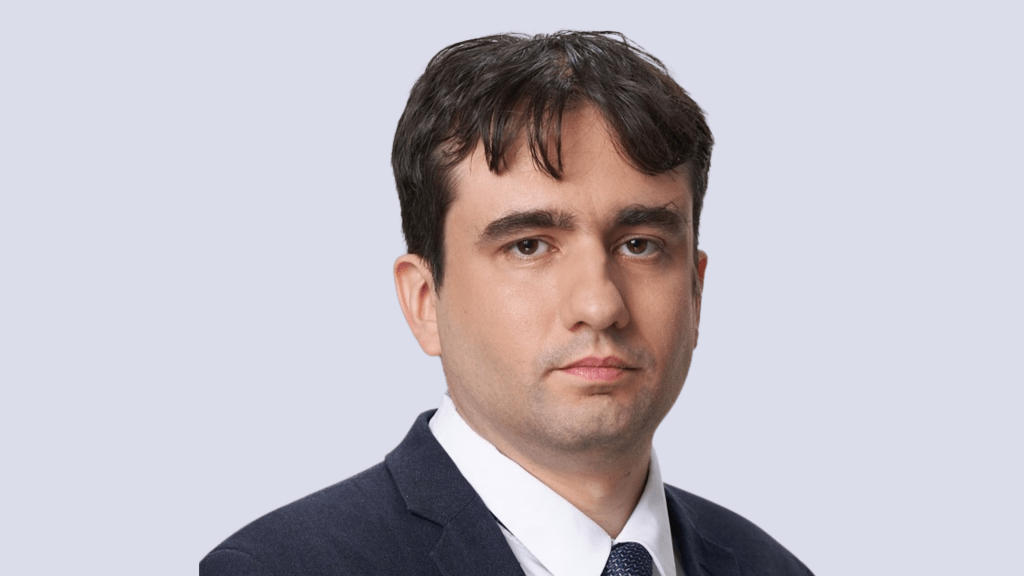
How startup-friendly are these countries? SEE innovation destinations compared
As startups in Southeast Europe start to rise to global success thanks to technology, the
Search for...

As Bulgarians head to the ballot boxes this Sunday for the third time in a row in 2021 to elect a new parliament, all wonder if political parties will succeed in forming a stable government this time.
Amidst a worsening health crisis, with Bulgaria ranking first in the EU in terms of COVID-19 death toll, and heated corruption scandals, the digital acceleration of the Bulgarian economy becomes even more important as a way forward.
The previous parliament, which was dismissed in September, started some important initiatives in the area. It formed a designated commission for digitalization and e-governance and it started working on some legislative proposals such as introducing an e-identity and alterations of the commercial law to make more flexible rules for pool vesting, tag-along, drag-along, etc.
The vice-chairman of BESCO, a Bulgarian NGO, pushing for legislative changes to update the framework for innovation businesses, said in an interview for The Recursive that the new parliament will need to have at least six months’ life to adopt these changes.
The Recursive asked 6 parties that are projected to hold seats in the next Parliament by election polls, for their views on:
Four political candidates responded to our request. You can see their full positions below, listed alphabetically. Three of the political candidates come from the Bulgarian IT and innovation ecosystems, one has a background in finance.
You can also compare their ideas on:
Political candidates seem to all agree that Bulgaria quickly needs a working e-government to unload the administrative burden from both citizens and businesses and provide fast access to services. They think this should happen not only through building an adequate infrastructure, but also through the optimization of the processes and the administration. Millions have been spent on e-government projects so far with poor results.
That is why the anti-establishment parties stress that reducing the regulatory burden is important to improve the business environment, but a zero tolerance for corruption is needed to actually achieve that.
Political candidates also state that the missing ingredient for the scalability of the Bulgarian innovation ecosystem is modernizing education and improving the cooperation between universities and businesses. All propose increasing the budget for R&D as a percentage of the GDP and creating conditions for the private sector to invest significant amounts in R&D.

Blagovest Kirilov is an entrepreneur in the field of information technology and outsourced services. He is running for Parliament from the Bulgarian Socialist Party (BSP). He was an MP in the two previous National Assemblies. Kirilov teaches at the Technical University of Sofia. After more than ten years of experience and managing some companies in the IT sector, he left the corporate world in 2017 to pursue his own projects.
The Recursive: What is the USP of the Bulgarian innovation economy?
Blagovest Kirilov: Bulgaria is ranked first in Europe in IT-certified specialists per capita and 12th among the countries with the best developers in the world. With Bulgarian educational systems prioritizing IT and engineering skills, solid multi-language skills of the talent pool and the growing IT sector, Bulgaria offers a flexible, highly skilled workforce bundled with a stable infrastructure, fast connectivity, and competitive wages. Bulgaria has the unique opportunity to be at the forefront of emerging sectors such as Fintech, AI, and as a Startup hub in Eastern Europe.
Three key reforms that will speed up the growth of the value-added economy?
Blagovest Kirilov: Bulgaria needs working e-government providing fast access to services for companies and citizens alike. A key priority is the optimization of the processes and institutions that provide those services.
The high-tech sectors should receive a key role in R&D, innovation hubs across different municipalities and on a national level, which can be attained through the creation of a Ministry of digitalization, e-government, and information technology, governing and leading policies for sustainability and growth.
Access to capital should be diversified with different options like vesting, access to various European and local funds, etc. Such a measure will motivate more and more companies to invest in R&D in cooperation with university tech centers or build their own.
Three mandatory premises for creating a good environment for the industries of the future?
Blagovest Kirilov: The government should provide effective electronic services for companies to reduce administrative stress on them, increase resource efficiency to reduce pollution and waste, and focus on innovation and products with high added value as a roadmap for the Bulgarian economy.
What is the key priority of Bulgaria in reaching the goals of the EU Green Deal?
Blagovest Kirilov: Bulgaria’s top priority should be to uphold the rule of law, not only in regards to the Green Deal but on all levels of the economy and administration, to have effective measures and protect its nature.
Bulgaria can focus on reducing emissions by improving the percentage of “clean energy”, which also includes building up additional nuclear energy sources. Bulgaria should also work for building an economy focused on reusable products, a key component of which is recycling.
Does Bulgaria need a Ministry of Innovation?
Blagovest Kirilov: Bulgaria needs a separate ministry of digitalization, e-government, and information technology. Streamlining the government infrastructure by incorporating processes and vendors such as “Information services” AD would offer a far more responsive environment to support e-services for citizens and companies. This would foster innovation and R&D in close cooperation with universities and businesses.
Which are the three main obstacles to the development of the high-tech business? What is your plan to overcome them?
Blagovest Kirilov: Developing competencies and expertise in high-tech industries requires effective R&D centers and significant infrastructure. Small companies are struggling to create and maintain those. The ecosystem needs to start expanding with different sandboxes, innovation, and R&D hubs together with universities, as well as funding programs aimed at local R&D for product development.
What is the roadmap for working e-government?
Blagovest Kirilov: Set up an effective operating model and a regulatory framework for broad usability
Ensure system interoperability, secure infrastructure, and data integrity
Offer high-value use cases with a positive user experience
Establish user trust by the combination of all the previous steps
How would you ease the barriers to starting a business?
Blagovest Kirilov: Create a state-backed “one-stop-shop” for funding, administering, and closing businesses. This will ease the time from idea to market realization and will reduce any administrative hurdles on the way.
The transformation of key digital services into easy-to-use and customer-focused systems would further encourage entrepreneurs.
An effective start-up visa would complement the previous measures by focusing on both international and domestic markets.
How would you make Bulgaria more attractive for entrepreneurs and talent outside of the EU?
Blagovest Kirilov: Introducing a start-up visa is paramount to making Bulgaria more attractive for foreign entrepreneurs. We have already signed the Startup Nation Standard and we should abide by it for up to two years. But there are many additional steps that need to be taken in order to implement programs and create incentives that will encourage tech-talent and experienced staff, who emigrated to third countries, to return and work here.
What is the missing ingredient for the scalability of the Bulgarian innovation ecosystem?
Blagovest Kirilov: A scalable system should offer the base infrastructure for growth. Work on building up the talent pool and set a clear goal for continuous performance improvement and innovation. The key to having a stable outlook is a strategically balanced investment in the ecosystem based on a set roadmap.
What should be the percentage of GDP that Bulgaria spends on R&D?
Blagovest Kirilov: Bulgaria should spend at least 1% of its GDP on R&D. Research can be done at technology centers, through scientific and development activity, as well as technological transfer. Prioritized government funding should be provided for research projects with either high social value, like medical research or environmental studies, or with the potential to develop (or build) a high value-added economy, like the tech industry.
Do we need regulations for remote work?
Blagovest Kirilov: The current regulations on remote work create two main problems. First, providing the same work conditions for each employee is overlooked by many companies because of the lack of control. Second, the right to “switch off” is quite often lost amidst incoming work requests.
Remote work should be regulated clearly via control mechanisms in place and a straightforward process checklist for companies, as well as for employees that emphasize on regular feedback towards the controlling institutions regarding any inconsistencies.
Should Bulgaria raise the maximum insurable earnings or not?
Blagovest Kirilov: The main way to keep Bulgaria’s economy stable is ensuring the stability and sustainability of the tax and social security system. Thus, the maximum insurable earnings could be raised, but under the condition that the average salaries and the minimum wages will also increase by being linked together, while the corporate income tax is kept stable.
If you were in the government how would you deal with resistance in the administration to implement reforms?
Blagovest Kirilov: The government should ensure sound multilevel governance through coordinated efforts on different levels of the government, involving all stakeholders fairly in administrative strategies. Measurement and evaluation mechanisms should also be developed and improved in order to ensure the public interest is upheld through the reforms.
What incentives should the municipalities offer to create and stimulate innovation?
Blagovest Kirilov: Municipalities should develop regulation that keeps up with the fast pace of innovation and stimulate it to develop further. Ownership of intellectual property should be clearly defined. There should be easy access to capital funds for innovations on a local level. The research and innovation projects developed at universities and research institutions should be transferred easily (from one institution to another).
Openness to partnerships, organizational arrangements focused on a formal strategy for innovation as well as data management capabilities form the base each municipality should build on. In addition, providing open-source assets for start-ups would foster a sustainable innovation flow in the respective community.

Bozhidar Bozhanov is a software engineer and an entrepreneur, who co-founded the cybersecurity company LogSentinel. Bozhanov is running for parliament from Democratic Bulgaria (DB). He served as an advisor to the Commission for Digitalization and E-governance in the previous National Assembly. He’s an expert in the development of e-government and as such, he participated in the preparation of a number of legal amendments and strategic documents.
The Recursive: What is the USP of the Bulgarian innovation economy?
Bozhidar Bozhanov: The combination of talent and resilience. Innovation requires both.
Three key reforms that will speed up the growth of the value-added economy?
Bozhidar Bozhanov: Reducing bureaucracy through e-government and smart (de)regulation.
Education reform – in order to continue nurturing talent.
Justice reform – in order to make Bulgaria a safe destination for investment.
What are the three mandatory premises for creating a good environment for the industries of the future?
Bozhidar Bohzanov: They overlap with the reforms mentioned above – policies are mostly aimed at providing a good environment. Government can’t and shouldn’t interfere, trying to “help” with things it’s not competent in.
What is the key priority of Bulgaria in reaching the goals of the EU Green Deal?
Bozhidar Bohzanov: We are a few steps behind other EU countries. We took EU money to accelerate our progress, but we wasted it due to corruption. So if I can pick one thing, it’s tackling corruption, which will allow the EU Green Deal to provide real results, not just piles of documents allegedly proving we reached the goals.
Do we need a Ministry of Innovation and Research?
Bozhidar Bohzanov: No. Proliferation of ministries is mostly about moving chairs. We have an agency, we have two ministries that can work together, and it’s better to have the agency coordinate the ministries via a dedicated deputy prime minister than to create another silo.
What is the roadmap for a working e-government?
Bozhidar Bohzanov: We have a very detailed plan, maybe even too detailed and boring for the broad readership. It includes legislation changes, focus on particular projects, but most importantly – leadership in both the executive and the legislative branches. Many plans and roadmaps existed before and there was just nobody to push them through. We plan to do exactly that.
How would you ease the barriers for starting a business?
Bozhidar Bohzanov: Starting itself is easy – you can get a limited company pretty quickly. The problem starts after that, and especially when you start growing. What we can and should do is make it possible to start it with one click, using templates. It’s a pure UX improvement on top of existing legal norms and technical infrastructure.
How would you make Bulgaria more attractive for entrepreneurs and talent outside of EU?
Bozhidar Bohzanov: Bulgaria should have a better overall image. Currently it’s “corrupt and dangerous” and that’s not okay for attracting entrepreneurs.
What is the missing ingredient for the scalability of the Bulgarian innovation ecosystem?
Bozhidar Bohzanov: I don’t think anyone can answer that question quickly. Probably we collectively lack the belief that we can scale it.
What percentage of GDP should Bulgaria spend on R&D?
We should reach the EU average. It’s significantly below that at the moment. We should not de-prioritize other sectors; instead we should optimize them. There is a lot of inefficiency in the public sector that can be improved.

Do we need regulations for remote work?
Bozhidar Bohzanov: Yes. Unfortunately the labour code is not fit for remote work. We’ll propose amendments to the labour code that would allow remote work in all of its variants.
Should Bulgaria raise the maximum insurable earnings or not?
Bozhidar Bohzanov: In the near future, no. It should follow inflation and the rise of the minimum salary, of course. But we have to have a broader debate about the pension system, because it will collapse sooner or later in its current form.
If you were in the government, how would you deal with resistance in the administration to implement reforms?
Bozhidar Bohzanov: It’s sort of a myth that the administration doesn’t want e-government. It will make their job easier as well. Yes, it may lead to mid-term downsizing. Resistance is usually performed in the form of procedural tricks and delays. This is countered with a lot of work and knowledge of the procedures. We have that and are prepared to do the work that they will refuse to do.
What incentives should the municipalities offer to create and stimulate innovation?
Bozhidar Bohzanov: This requires a longer answer regarding fiscal decentralization and the reorganization of the municipal map. But I wouldn’t say they should offer too much – they should just not stand in the way.

Denitsa Simeonova is an engineer, startup founder and mentor, who is part of the founding team of the party “We continue the change”. She was the head of the political cabinet of the Minister of Finance in the first 2021 caretaker government. Prior to that, she was the delivery manager of the Leaders in Innovation Fellowships program of the British Royal Academy of Engineering. She was also the executive director of the Association of Bulgarian Leaders and Entrepreneurs (ABLE). She co-founded the digital platform for reducing food waste- Sofia2Go. Denitsa holds a Master’s degree in e-Management and a Bachelor’s degree in Industrial Engineering from the Technical University of Sofia.
The Recursive: What is the USP of the Bulgarian innovation economy?
Denitsa Simeonova: Our innovative potential lies in B2B software companies. There are successful examples such as the well-known Telerik. Our legacy in computer science and mathematics education is one of the main reasons behind this. This comes at a great advantage compared to hardware companies, which require large amounts of funding and specialized factories – something that is difficult to achieve here at the moment. Another opportunity for the country is the so-called niche manufacturing. An inspiring example is the climbing wall manufacturer Walltopia which is a global leader in its sector.
Three key reforms that will speed up the growth of the value-added economy?
Denitsa Simeonova: There are two short-term and one long-term reforms.
In the long-term, however, we are faced with even more critical challenges. It is shocking that 40% of Bulgarian ninth-graders are functionally illiterate in science, maths and reading according to the most recent PISA survey. Citizens are core in developing a sustainable economy and we need to enable every one of our citizens to build up their potential.
What are the three mandatory premises for creating a good environment for the industries of the future?
Denitsa Simeonova: Zero tolerance to corruption. We have a comparatively low 10% flat tax rate which should attract many European and international businesses. Reality, however, is that corruption adds many “hidden taxes”.
Developed and accessible industrial zones. Today, companies have to wait for years to build the necessary infrastructure, warehouses, and connect to the electricity grid. We want to change this, it should be easy and convenient for businesses to open factories here.
Economic clustering. There are multiple examples of multinationals choosing our neighbours over Bulgaria to open a new facility. We need to acknowledge this fact and change it by proactively attracting companies, their suppliers and partners.
What is the key priority of Bulgaria in reaching the goals of the EU Green Deal?
Denitsa Simeonova: The priority is to stop neglecting the problems in our energy sector and create a long-term strategy towards affordable and green energy.
Do we need a separate Ministry of Innovation and Research?
Denitsa Simeonova: Yes, we do. We need a complete restructuring of the Ministry of Economy. A new Ministry of Economy and Innovation has to be centered around the creation of high value-аdded products, delivering jobs and livelihoods. This new ministry needs to work closely with the Ministry of Education, because science, innovation and education are not only interconnected but will also be the core driver in the development of a sustainable Bulgarian economy.
The three most important obstacles to the development of high-tech business and your plan to overcome them?
Denitsa Simeonova: This picks up on the reforms mentioned earlier such as the non-digital administration, the lack of qualified professionals, and the poor performance of our education system. Specifically addressing high-tech businesses, we need to provide smart capital for growth. This involves more than just grants. High-tech businesses should be able to choose from a variety of funding sources, on local, national, and international level. This is crucial to support new businesses in scaling up their operations.
What is the roadmap for a working e-government?
Denitsa Simeonova: E-government should be an actual priority rather than a pre-election promise. Digitization involves investment in assets but more importantly it is a driver to change and optimise outdated processes within the bureaucracy. Estonia is an inspiring example here. A national cloud based service would significantly reduce the friction between citizens and the state, not just between businesses and the state. Logically, this is a tremendous challenge and we will need a comprehensive change management strategy on how to on-board the current administrations to the new ways of working.
How would you ease the barriers to starting a business?
Denitsa Simeonova: I believe that the problem lies less in starting a business here as you can register any company with just 1 BGN of capital in a short time. The problem is rather tied to keeping such a business successfully in business. This is where our short-term focus should be.
How would you make Bulgaria more attractive for entrepreneurs and talent outside of the EU?
Denitsa Simeonova: Bulgaria is attractive – we have magnificent nature, rich social life, and a pleasant climate. This is why a large community of foreigners is already based here. As mentioned above, shortening the visa vetting process for knowledge-workers and attracting them here, from countries that are culturally similar to Bulgaria like Ukraine, Moldova should be on top of our to-do list. Moreover, we should promote Bulgaria as a hub for the increasing number of digital nomads circling the world and spending money locally.
What is the missing ingredient for the scalability of the Bulgarian innovation ecosystem?
Denitsa Simeonova: If I could summarise in one word – clients, or rather the lack of them. If we look at the example of tech giants like the USА or Israel, large companies are usually the first customers of B2B tech startups. Here, we lack business clients on a local level to take the risk and become ‘early adopters’ of the early-stage software companies. We also lack growth capital – to move from the ‘validating and proving the concept’ phase, companies which are ready to scale need more than accelerators. However, there are also positive trends here, such as larger IT companies that have started contributing back to the community with marketing and know-how.
What percentage of GDP should Bulgaria spend on R&D?
Denitsa Simeonova: We should strive for the European average, but even more important than this percentage is how we spend the state budget. The country needs to create conditions for the private sector to invest significant amounts in R&D. Universities and research institutes have to be active participants in this ecosystem like in developed countries. We need more partnerships between businesses, universities, and institutes.
Do we need regulations for remote work?
Denitsa Simeonova: The function of the state is to protect people. If we see their rights abused, we would need to look into it.
Should Bulgaria raise the maximum insurable earnings or not?
Denitsa Simeonova: The problem in Bulgaria is not that the taxes are low, but that we do not collect them effectively. The fundamental difference between us and other countries is that they collect and spend these taxes in a more optimal way for the citizens. Assen Vassilev in his capacity as Minister of Finance in the Caretaker government has proven how this could be a reality here as well.
If you were in the government, how would you deal with resistance in the administration to implement reforms?
Denitsa Simeonova: The administration is not an enemy, there are some very competent people working there. The problem is that the administration is often not allowed to do its job properly. The staff is led by political decisions, instead of being able to take decisions based on expertise. We aim to empower our administration and not to interfere in its work too much. The goal should be to have a professional and independent administration like the English one. Last but not least, we need to make sure that there are no more “ladybugs” in the administration who are appointed politically.
What incentives should the municipalities offer to create and stimulate innovation?
Denitsa Simeonova: Once again, we come back to our main priorities which need to be addressed on each level. Zero tolerance to corruption would be a solid basis to attract innovative companies to different municipalities. Combined with a real e-government and strategic focus on education, we believe this would be a real boost to all regions in Bulgaria. This would also allow many people to rethink their lifestyle and consider relocating outside of the capital and the big cities and to attract knowledge-workers there.

Peter Chobanov is a financier, a candidate for MP from the Movement for Rights and Freedoms (MRF). He was an MP in three previous National Assemblies. Chobanov served as a Minister of Finance in 2013. He was also a chairman of the Financial Supervision Commission in 2009-2010. He has a Ph.D. in Finance and is an associate professor at the UNWE in Sofia. He’s also the Director of the Institute of Economics and Politics – UNWE.
The Recursive: What is the USP of the Bulgarian innovation economy?
Peter Chobanov: Information technology has great potential in terms of innovation economy and high selling point. In order to position ourselves as a leader, we need to develop niche industries to take a more favorable place in the emerging EU value chains.
Three key reforms that will speed up the growth of the value-added economy?
Peter Chobanov: Digitalisation of the economy for reducing the subjective element as well as increasing the efficiency.
Administrative reform to achieve flexible and highly qualified administrative units who will receive a real-time feedback on current policies.
Reducing the regulatory burden, ensuring equality for all business entities and improving the business environment.
What are the three mandatory premises for creating a good environment for the industries of the future?
Peter Chobanov: Accelerating digitalization, including e-government and public services.
Achieving greater efficiency and synergy from the education-science-business correlation, with practical implementation of research results into the economy.
Building, retaining and attracting highly qualified employees.
What is the key priority of Bulgaria in reaching the goals of the EU Green Deal?
Peter Chobanov: The transition to a “hydrogen economy” while avoiding the drain of the country’s work force, which is insufficient already.
Do we need a Ministry of Innovation and Research?
Peter Chobanov: Not necessarily. It is better to relate to it as a top priority and commitment to implement an adequate policy by the Ministry of Economy. Creating another administrative structure does not guarantee better results.
The three most important obstacles to the development of high-tech business and your plan to overcome them?
Peter Chobanov: Lack of sufficient quantity of qualified employees.
A serious slowdown in digitisation and digitalisation processes, especially in public services.
Insufficiently stable legislation regarding the business environment – frequent changes create uncertainty and make planning difficult.
Solutions:
What is the roadmap for a working e-government?
Peter Chobanov: Reaching a prompt consensus among political forces that these are top priorities. Performing a functional analysis of the current situation and formulating specific objectives and timelines to achieve these priorities.
Swift changes in legislation if needed and ensuring the necessary funds with effective expenditure control. Reporting on government progress on a monthly basis, as well as taking corrective action and taking responsibility when targets and deadlines are not met.
How would you ease the barriers for starting a business in Bulgaria?
Peter Chobanov: Review regulatory regimes within a month frame and require legislation changes to ease them.
Digitising public services and reducing the subjective element. The registers should be linked and a document available in one institution should be visible to all institutions and not required by the entrepreneur himself.
Required permits to be considered concurrently in order to avoid waste of time.
Fixing the framework for business, with a commitment not to change within the mandate, except for additional easiness of conditions.
How would you make Bulgaria more attractive for entrepreneurs and talent outside of the EU?
Peter Chobanov: Digitalisation
A flexible administration that is in service of citizens and businesses.
Applying the principles of the shared economy.
Active policy to attract investment and talent.
Ensuring the applying of the rule of law and ensuring equality for economic entities.
Maintain the taxes on labour and profits being low and proportional.
What is the missing ingredient for the scalability of the Bulgarian innovation ecosystem?
Peter Chobanov: The underdevelopment of digitalisation processes, as well as the poorly functioning state-science-business correlation.
What percentage of GDP should Bulgaria spend on R&D?
Peter Chobanov: Fixing at a certain percentage does not guarantee high efficiency. The formulation of policies should include an analysis of how they relate to R&D, with a component for R&D where possible. Increasing efficiency in terms of research results and their implementation into the economy.

Do we need regulations for remote work?
Peter Chobanov: There are currently regulations on the remote working regime. A situation of over-regulation should not be allowed which will reduce the flexibility of this necessary mode of work, especially in a pandemic.
Efforts should be made to apply the principles of the sharing economy and combine it with the remote working regime.
Should Bulgaria raise the maximum insurable earnings or not?
Peter Chobanov: Not to be raised. In a situation of rising inflation, especially in terms of rising costs of production, any additional burden could lead to a slowdown in economic development.
Increasing the tax burden for people with lucrative jobs could discourage them and increase the motivation to avoid taxes.
If you were in the government, how would you deal with resistance in the administration to implement reforms?
Peter Chobanov: Clearly formulating policies that lead to structural reforms and are accepted by society. Setting objectives that are measurable and allow objective evaluation of administrative staff.
Achieving accelerated economic growth will enable the recruitment of administration staff in the private sector, as well as raising the salaries of key administration staff.
The implementation of reforms will be accompanied by a clear perspective for higher qualification and career development of administrative staff.
What incentives should the municipalities offer to create and stimulate innovation?
Peter Chobanov: Establishment and development of industrial zones that have the necessary infrastructure to launch innovative industries. Increasing efficiency through the development of “smart cities” and “cities of knowledge”.

As startups in Southeast Europe start to rise to global success thanks to technology, the
Every single contribution of yours helps us guarantee our independence and sustainable future. With your financial support, we can keep on providing constructive reporting on the developments in the region, give even more global visibility to our ecosystem, and educate the next generation of innovation journalists and content creators.
Find out more about how your donation could help us shape the story of the CEE entrepreneurial ecosystem!
One-time donation
You can also support The Recursive’s mission with a pick-any-amount, one-time donation. 👍
Today marks the fourth anniversary of Russia’s full-scale invasion of Ukraine, 48 months of war. […]
Regional investors are increasingly viewing AI as a category currently caught in an overhyped bubble. […]
Wonderful, the Amsterdam-based platform for autonomous enterprise AI agents, which secured $134 million in total […]
